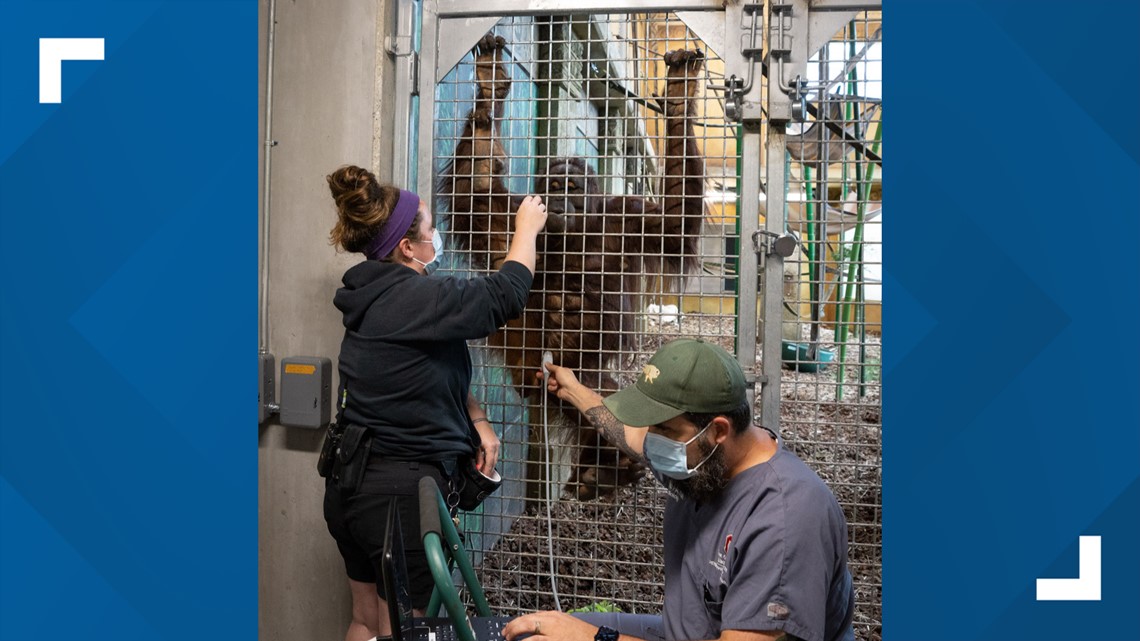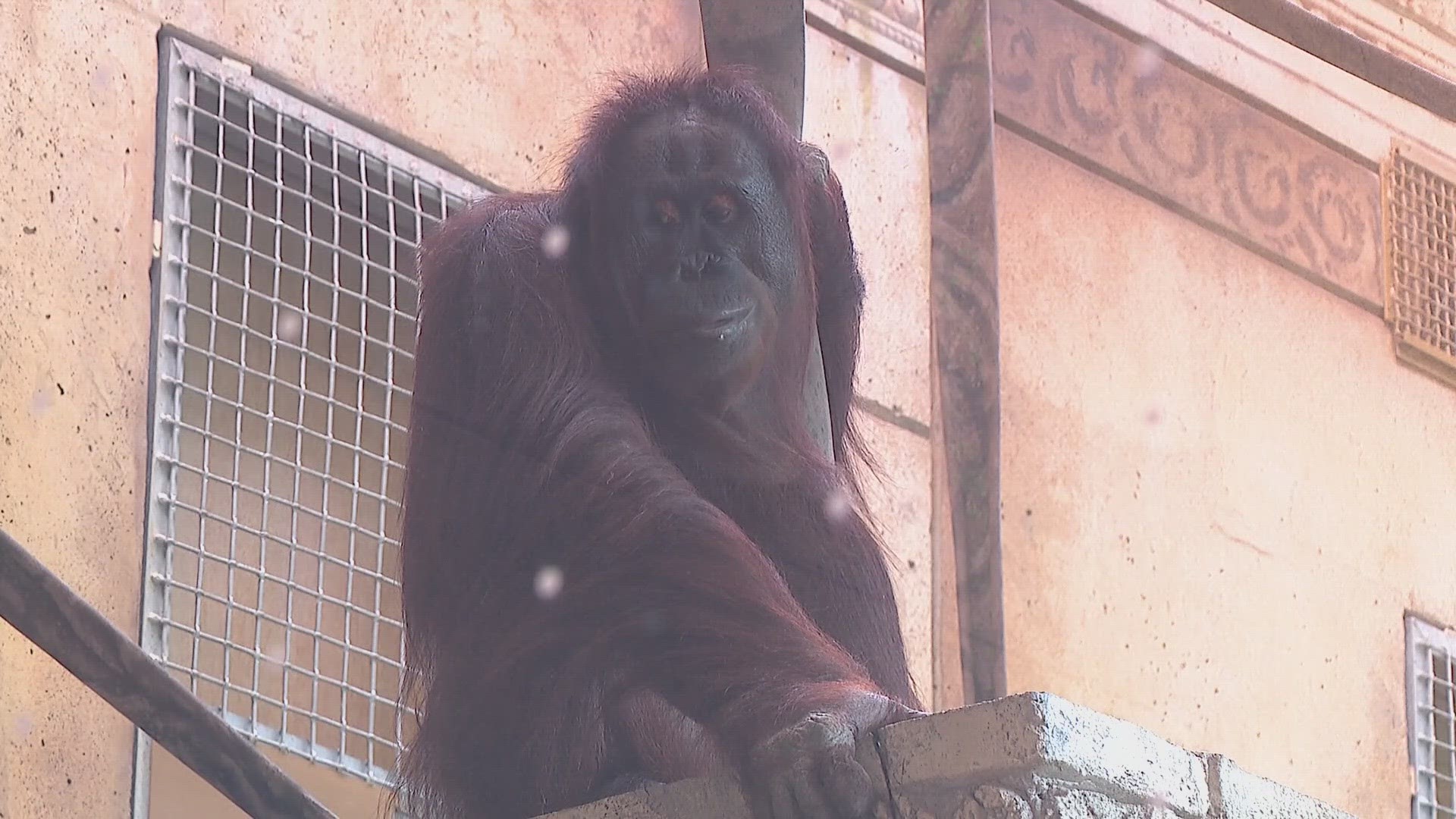POWELL, Ohio — The Columbus Zoo and Aquarium will be welcoming two baby great apes later this year!
The zoo announced it is preparing for the births of a baby Bornean orangutan and a baby bonobo.
Khali, a 17-year-old orangutan, and Faith, an 18-year-old bonobo, are each entering the later stages of their pregnancies. The two are expected to give birth in late fall.
In early spring 2023, the Columbus Zoo's Animal Care Team noticed Khali's stomach was swelling and she was likely pregnant. Around the same time, the zoo gave Faith a pregnancy test which resulted in a positive test. Each ape participated in an ultrasound which confirmed their pregnancies.
The zoo is working with Hostnik, a veterinary radiologist with the Ohio State University's College of Veterinary Medicine, to help monitor the great apes. Ultrasound imaging shows that the babies are developing well.
“Khali's super cooperative so really not too difficult with her, we just need to make sure she's content and hungry and not stressed,” Dr. Eric Hostnik. “Right now we're seeing a lot of arms, a lot of legs, with the arangatan, so a lot of hands that are up, the bones of the arms are developing really well, we can see digits at this point, we can see the heart beating, the umbilicus pumping blood in.”


The sex of the babies will not be determined until after they are born.
Faith's baby will be the first bonobo born in the United States in three years and first bonobo born at the Columbus Zoo since 2016.
The population of Bornean orangutans is estimated to be between 70,000 to 100,000, but their habitat has declined over the last 20 years because of logging and oil palm plantations.
There are only 5,000 to 20,000 bonobos estimated to be living in a very small range in the equatorial forests of the Democratic Republic of Congo due to their habitat being destroyed through logging and bush meat hunting.
To learn more about the apes and their expected babies, click here.

